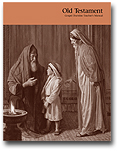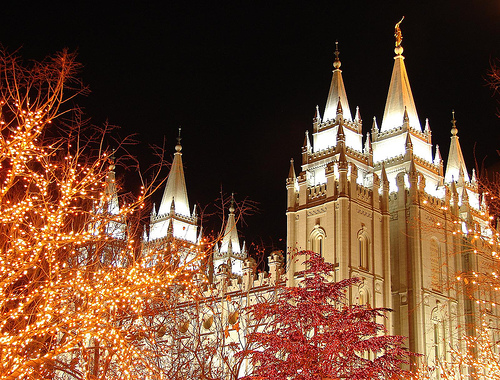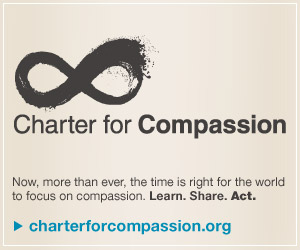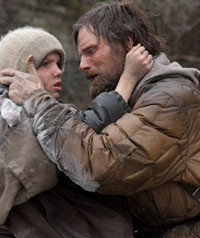-
•
•
18 responses

In the Church, December means different things to different people. If you’re three, you will soon be exiled from that zone of energetic irreverence known as Nursery to your first real class, Sunbeams. If you’re a bishop, holiday cheer is tempered by the month-long grind of tithing settlement. But one change we all look forward to every year is the annual Sunday School curriculum reboot. The anticipation is palpable. Yes, even this year, with the Old Testament waiting in the wings. Any course of study gets old after twelve months. Universities run on quick 10-week quarters or endless 16-week semesters.… Read More
-
•
•
43 responses
I’m not Scrooge and I’m not the Grinch, either—but December is enough to make me feel like one of those guys. It’s only December 6, and I’m feeling sick and tired of this month. Could we schedule anything else? Seriously. I cut back on parties and try to simplify, just like nice mommy articles suggest. I do. I make or buy four carefully chosen presents per child in pre-set categories, so I don’t overspend. I refuse every invitation I can. But what else are we going to cut? The first grade Gingerbread Man play, the Christmas piano recital, or the… Read More
-
•
•
9 responses

Christmas Season, 1989. I was a freshman at the University of Utah, my first year away from home. As a poor student I was looking for extra holiday cash, and the Help Wanted ad for a shopping mall Santa seemed like just the thing. Despite my 18-year-oldness, the manager was desperate to fill the big chair, so I walked out of my short interview with a prosthetic belly, a red suit, a wig, and some bells. [quote] Christmas had lost its luster a decade before, the day I had gone searching for my swimming mask and snorkel in our travel… Read More
-
•
•
27 responses

My co-blogger Sharon put up a most enjoyable post a few weeks ago. I liked it so much that I’m going to pay it the compliment of differing with one or two of its points. (In blog etiquette, after all, quibbling is the highest form of flattery.) Sharon points us toward a Christian anti-consumerist movement called Advent Conspiracy, which takes as is raison d’etre an apparent cultural contradiction. “What was once a time to celebrate the birth of a savior has somehow turned into a season of stress, traffic jams, and shopping lists,” the site’s copy reads. “What if Christmas… Read More
-
•
•
58 responses
“[University of Utah Quarterback Alex] Smith is a native of San Diego and knew little of the Utah-BYU rivalry. He knows now. “I’m much more into it this year,” Smith says. “I really hate them. Playing in the game helped me understand. They are the most arrogant people. It’s the whole church and state thing. They’re the ‘good kids’. We’re the ‘bad kids.’ I didn’t feel it in my gut last year like I do now.” November 19, 2004, Smith pays the price for knowledge, ESPN.com Discuss. Read More
-
•
•
13 responses
I recently had a short discussion with a journalism student about how Mormons and Mormonism get covered in the mainstream media and whether new online media, including blogs, do any better. I’ll summarize my responses below, but I invite readers to offer their own responses in the comments. 1. How do Mormons feel about increased coverage of Mormonism in the mainstream media that accompanied Mitt Romney’s presidential candidacy? I don’t know any Mormon who resents the increased coverage or wishes the media would stop talking about Mormonism. Of course, it is nice when journalists who include references to Mormonism in… Read More
-
•
•
47 responses
You know how you can’t swing a dead cat in Church without smacking into someone talking about how wicked our day is? Read More
-
•
•
30 responses

December is my favorite month ever. Except maybe May 18. Which isn’t really a month, but could be celebrated all year long. Still, these are my favorite things about December. Mostly in chronological order. Read More
-
•
•
45 responses

In the spirit of the season, Times and Seasons is giving away three sets of tickets to the First Presidency Christmas Devotional. The event is on Sunday, December 6th, at the Conference Center, and will feature the Mormon Tabernacle Choir and the Orchestra at Temple Square. These tickets are in high demand and only offered by the Church in a random distribution. Fortunately for our readers, scheduling conflicts prevent us from using these. We are offering them in a random drawing to be held on Monday, November 30th at 10:00 PM. To Enter Simply leave a comment on this post… Read More
-
•
•
7 responses
That ye contend no more against the Holy Ghost, but that ye receive it, and take upon you the name of Christ; that ye humble yourselves even to the dust, and worship God, in whatsoever place ye may be in, in spirit and in truth; and that ye live in thanksgiving daily, for the many mercies and blessings which he doth bestow upon you. -Alma 34:38 Read More
-
•
•
97 responses

Some years ago I sat in a Gospel Doctrine class taught by a physician. I mention his profession because I think it matters, as he took the opportunity to deviate from the lesson and condemn in the strongest terms the theory of evolution. He labeled it a satanic concept, one that we must avoid, one that destroys faith. I took a deep breath and then spoke up. I pointed out the numerous statements and scriptures supporting learning from the best books, and pointed to Brigham Young’s statement that Mormonism embraces all truth. It wasn’t the most uplifting class. I might… Read More
-
•
•
8 responses
A new issue of The Mormon Review is available, with Rosalynde Welch’s review of The Book of Dave by Will Self. The article is available at: Rosalynde Welch, “Of Prophets and Jugglers: Will Self’s The Book of Dave,” The Mormon Review, vol.1 no. 9 [HTML] [PDF] For more information about MR, please take a look at the prospectus by our editor-in-chief Richard Bushman (“Out of the Best Books: Introducing The Mormon Review,” The Mormon Review, vol.1 no.1 [HTML][PDF]). In addition to our website, you can have The Mormon Review delivered to your inbox. Finally, please consider submitting an article to… Read More
-
•
•
43 responses

So, Times and Seasons is sporting a new look. But rest assured, while the packaging has changed we are not tinkering with the secret formula that creates the sweet, slightly acidic, but oh-so-refreshing content inside. This new design is – a bit lighter – a bit wider – aimed at featuring more – and more frequent – content By moving to a magazine-style layout, we still show the most recent post in a full and prominent position. But by breaking from a traditional listing format, we are able to show more headlines on the screen and include more posts on… Read More
-
•
•
7 responses

“…make the world a better place by smiling all the while.” (Primary Song #267) From the author of salt lake architecture and green mormon architect blogs. Read More
-
•
•
32 responses
It’s been a stressful time for us. My father in law had been battling leukemia for over a year, when he suddenly took a turn for the worse. FIL’s illness lasted a few more weeks, and he finally passed away. This has affected the family in a number of ways; most importantly for this post, it resulted in a complicated set of travel plans. Read More
-
•
•
19 responses
[See Part 1: Founding and Part 2: Flourishing] Any history of Nauvoo needs to give an account of the secret practice of polygamy between 1841 and 1846. In Nauvoo: A Place of Peace, a People of Promise, Glen Leonard does this in about twenty pages as part of Chapter 13, “Foes Within: The Church of the Seceders.” Read More
-
•
•
45 responses
Over at my other blog, a reader posted the following question: On a related LDS family matter, many of us have been confronted by Mormon missionaries with a message, or even a free DVD, of “Families are Forever.” A sincere, respectful question: isn’t this motto a solution in search of a problem? That is, what Christian believes there is separation or division among the blessed in heaven? Of course, Jesus himself teaches in extremely plain and simple terms, and Christian history has always held, that there is no marriage in heaven as we know marriage. But, shared Christian belief realizes… Read More
-
•
•
2 responses
Thanks to reader Clair for pointing this out in comments: The first issue of the Times and Seasons was published at Nauvoo. — 170 years ago today [err, yesterday] – Nov 15, 1839 . Happy birthday to us! Read More
-
•
•
7 responses
Faith and charity get plenty of attention, but hope not so much. Pessimism, it seems, has become one of the guiding principles of modernity, reflected in the media, popular culture, and even academia. So I was surprised to find a philospher making the suggestion that children anchor our hope for progress and our conviction that life will be better for the next generation. Read More
-
•
•
12 responses

In February, 2008, noted religious author Karen Armstrong was awarded the TED Prize, and her wish for the world was to gather a council of Christian, Muslim, Jewish, and other spiritual leaders to draw up a “Charter for Compassion.” Read More
-
•
•
7 responses

from Bill of Wasilla, who writes: Dad is the man who lies in this flag-draped coffin. I will not say too much about him for now, except that he was a good father and that, thanks to him, and many more like him, most of them gone now, the evil dream of a man named Hitler died in flames and blood. We buried Dad on June 2, 2007. He died on Memorial Day. Read More
-
•
•
60 responses
Utah is not part of the Midwest. Idaho is also out. That is all. Read More
-
•
•
9 responses

A new issue of The Mormon Review is available, with Russell Arben Fox’s review of Shop Class as Soulcraft: An Inquiry into the Value of Work by Matthew Crawford. The article is available at: Russell Arben Fox, “Getting Your Hands Dirty: Notes on How Mormons (and Everyone) Should Work,” The Mormon Review, vol.1 no. 8 [HTML] [PDF] For more information about MR, please take a look at the prospectus by our editor-in-chief Richard Bushman (“Out of the Best Books: Introducing The Mormon Review,” The Mormon Review, vol.1 no.1 [HTML][PDF]). In addition to our website, you can have The Mormon Review… Read More
-
•
•
20 responses
Each anniversary of the fall of the Berlin Wall is a bit embarrassing for me. Read More
-
•
•
76 responses

The persistence of love between a father and a son. Our most cherished relationships, our strongest commitments, laid bare in a book and a movie. Read More
-
•
•
60 responses
Kaimi put up a sidebar link to a NYT piece on parenting. It had an interesting quote: “Fathers tend to do things differently, Dr. Kyle Pruett said, but not in ways that are worse for the children. Fathers do not mother, they father.” Read More
-
•
•
31 responses
Let me begin by saying that I not only believe in the historicity of The Book of Mormon, I feel a deep and passionate commitment to our narrative. But this is a point on which I think Mormon historicitists, believers in a divine or human fiction, or any other type of good Mormon ought to be able to agree: The Book of Mormon is rich far beyond our nascent attempts to uncover. Read More
-
•
•
20 responses
For over a year I’ve wanted to write a substantive post about the contradiction between two of the best-known biblical injunctions, “let not thy left hand know what thy right hand doeth” and “let your light so shine before men that they may see your good works.” Read More
-
•
•
5 responses
The trial court in Reynolds v. United States gave the following jury charge, which the Supreme Court later found was proper and not inflammatory. I think it not improper, in the discharge of your duties in this case, that you should consider what are to be the consequences to the innocent victims of this delusion. Read More
-
•
•
4 responses

This is a statue of an angel in the cemetery where my first baby is burried. I like that she’s smiling. Death is heartbreaking but it’s not only sad. I am also filled with hope when I think about my son. He is alive and happy and we can be an eternal family. It has always been such a comfort to know that. Kirsten Obert Springville, UT Read More
